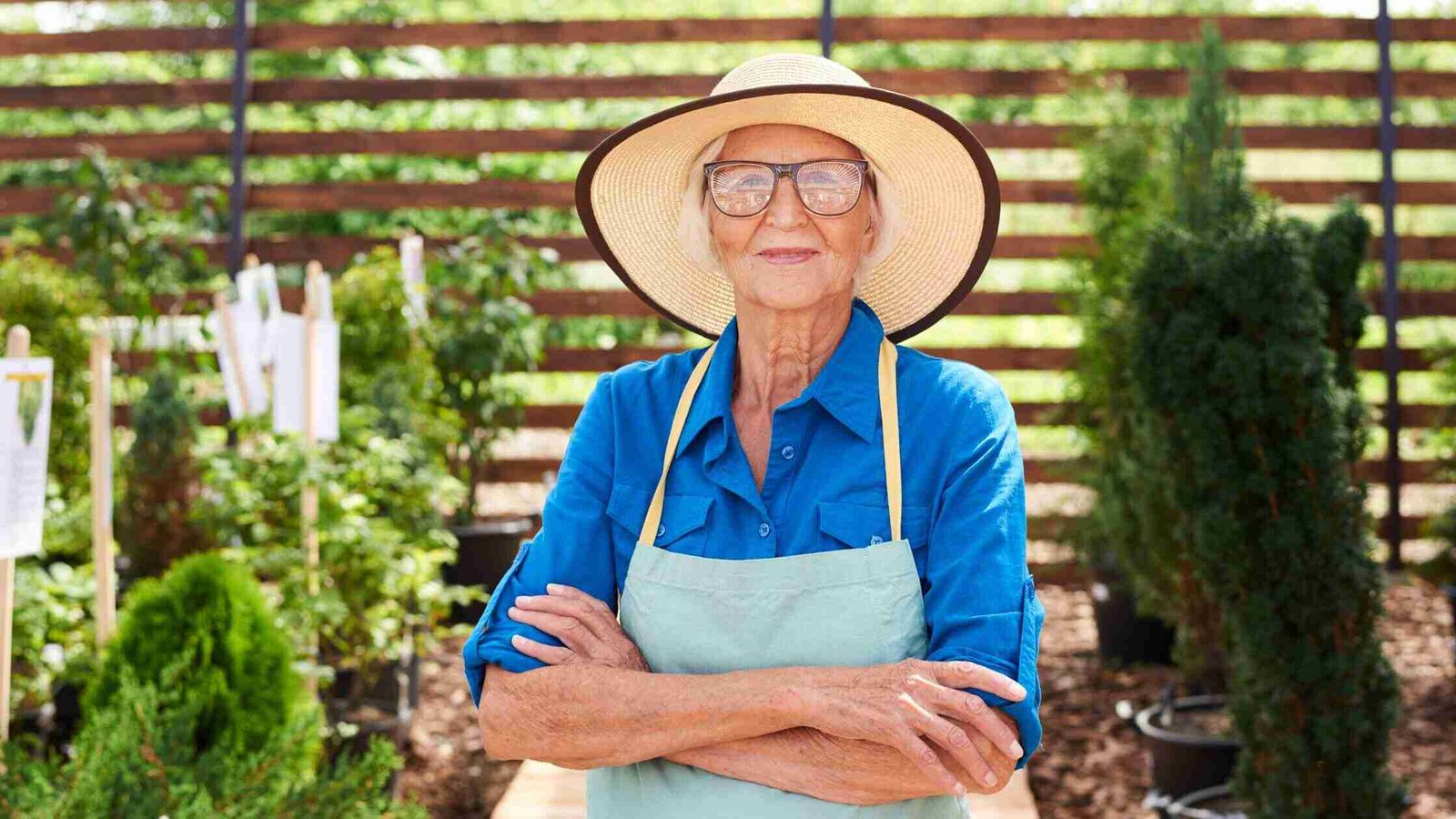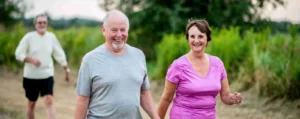In this article, we’ll walk you through 10 helpful summer safety tips every senior should know. You can even keep this list handy, so you’re ready to enjoy a safe, healthy summer.
Summer Safety Tips for Seniors
Here you will find the most important and practical summer safety tips.
1. Drink Plenty of Water:
As we get older, our bodies naturally go through changes that make it easier to become dehydrated without even realizing it. You may feel less thirsty, even when your bodies need water. That’s why it’s so important for you to drink water regularly throughout the day.
Besides plain water, you can stay hydrated by drinking fruit juices and other beverages you enjoy. Just be mindful of your health conditions, and try to avoid drinks with caffeine or alcohol, as they can actually cause dehydration
Read More: How Do You Know if Elderly is Dehydrated?
2. Protect Your Eyes:
Just like your skin, your eyes need protection as well. Too much sunlight can strain your eyes and even lead to long-term damage. When you’re outside, wear sunglasses that block 100% of UV rays. This helps prevent dryness, irritation, and serious conditions like cataracts.
3. Wear Light Clothing:
What you wear plays a major role in summer heat. Opt for loose-fitting, lightweight, and breathable fabrics like cotton or other natural, soft fibers that are gentle on the skin. These materials allow air to circulate and help your body stay cool.
Aside from the fabric, color are also important. Dark colors tend to absorb more heat, while light colors like white, beige, soft blue, or pastels reflect sunlight and keep you cooler. So when dressing for hot weather, always choose light-colored, cloths stay more comfortable.
4. Avoid Peak Hours Outdoors:
Summer days are bright and beautiful, and it’s tempting to step outside and enjoy the fresh air. But try to avoid going out when the sun is at its strongest—usually between 11 a.m. and 3 p.m. During these hours, the risk of heat exhaustion or sunstroke is much higher. Even just 10 to 15 minutes in direct sunlight can lead to dizziness, nausea, or headaches.
Here is what you can do:
- Use sunscreen
- Plan errands, walks, or gardening early in the morning or after 4 p.m.
- If you must go out midday (e.g., for a medical appointment), carry water, wear sun protection, and rest in shaded spots.
5. Protect Your Skin:
According to the National Institute on Aging, you should use sunscreen with at least SPF 30 to protect your skin from the sun. Make sure to apply it about 15–30 minutes before you plan to step outside. This is one of the best ways to protect your skin. You can also wear a wide-brimmed hat to cover your face and neck from direct sunlight. These small steps can really help you stay safe during the summer.

6. Be Aware of Medication Side Effects:
Some medications can make your body more sensitive to heat or cause dehydration. These may include treatments for high blood pressure, heart conditions, or allergies. It’s a good idea to check with your doctor or pharmacist to understand how your medication may react in hot weather. Keep a list of your medications handy and ask if any special precautions are needed during summer.
7. Keep Your Home Cool:
The last thing anyone wants during the summer is a broken air conditioning system. Be sure to have your system inspected before the hot weather arrives. You can install window units to protect against humidity if you don’t have central air. Another way to cool your indoor space is to open the windows early in the morning and evening and use fans to circulate the cooler air.
8. Protect Against Insects and Allergens:
Summer brings sunshine—but also bugs like mosquitoes and ticks that can carry harmful diseases. Seniors should be extra cautious when spending time outside.
Read More: How Can Allergies Affect Your Ears? A Look at Common Triggers
9. Watch for Signs of Heat Illness:
Hot weather can take a toll on your body, sometimes without you realizing it right away. It’s important to notice even small changes, especially when you’re spending time outdoors or in a warm room. Here are some signs of heat illness to look out for:
- Dizziness or fainting
- Rapid heartbeat
- Nausea or vomiting
- Headache or confusion
- Skin that feels hot, dry, or unusually red
If any of these occur, move to a cool place, drink water, and seek medical help immediately.
10. Stay Informed About Weather Alerts:
Summer weather can change quickly, and staying updated helps you stay safe and prepared. Environment Canada issues a heat warning when daytime temperatures reach around 30°C and nighttime temperatures stay above 20°C for two or more days.
By keeping an eye on the news, weather apps, or local radio stations, you’ll know when to take extra precautions. Staying informed also gives you time to plan ahead—like keeping your home cool, dressing appropriately, and knowing which nearby municipal cooling centers or public indoor spaces you can go to if you are outside.
Enjoy Every Summer in The Comfort of Your Home:
At ConsidraCare, we provide trusted, personalized in-home care services across the Greater Toronto Area (GTA). We believe that everyone deserves to live safely, comfortably, and with dignity.
Our team of experienced registered nurses and trained personal support workers help individuals like you with varying care needs live their best lives at home. Whether it’s help with daily routines like bathing and grooming, light housekeeping, meal preparation, or running errands, our caregivers are there to assist.
You’ll not only get reliable support, but also a friendly companion who keeps you motivated and brings positivity into your home. If you have specific medical needs, we offer personalized care services to match your unique preferences, health conditions, and lifestyle.
Let ConsidraCare help you stay safe, happy, and independent. Contact now!
Final Thoughts:
Summer can be a wonderful time of year, full of sunshine and outdoor gatherings. But for you, it’s important to take a few extra precautions to stay safe and comfortable in the heat. We have listed the most important tips for you to follow this summer, so you can enjoy all that summer has to offer without any health risks.
If you live alone, it’s okay to ask for help or have someone check in on you during extreme weather conditions.
FAQ’s
1. Why does the heat bother me as I get older?
As you age, your body doesn’t handle heat as well as it used to. Your skin changes, your sweat glands don’t work quite as hard, and your blood flow may not adjust quickly to high temperatures. Moreover, if you have health issues or take medications, they can also make it harder for your body to stay cool.
2. How much water should a 70 year old drink?
According to rule of thumb, seniors should drink about 8 to 12 glasses of water a day (that’s around 2 to 3 liters). If it’s extreme weather or you’re active, you might need even more. One Canadian guideline says you should aim for about one-third of their body weight in ounces of fluids daily. For example, if you weigh 150 pounds, that’s about 50 ounces of fluid — or around 6 to 7 cups.
3. Is it safe to exercise in very hot weather?
It’s best to avoid heavy outdoor workouts when it’s extremely hot. But light to moderate exercise is okay if you take precautionary measures. Try walking early in the morning or later in the evening when it’s cooler. Stay in the shade, wear a hat, and take breaks in the air conditioning or a cool place. Listen to your body, if you feel tired or dizzy, stop and rest.
4. What foods are hydrating in the summer?
Some foods have high water content and can help you stay hydrated. Try these:
- Zucchini: 94-95%
- Watermelon: 92%
- Strawberries: 90-91%
These are not only refreshing but also healthy and tasty!
5. What’s the first sign of heat exhaustion in seniors?
The first signs often include feeling weak, dizzy, or lightheaded . You might also feel nauseous or stop sweating even though it’s hot. If this happens, move to a cool place right away and sip water slowly.






